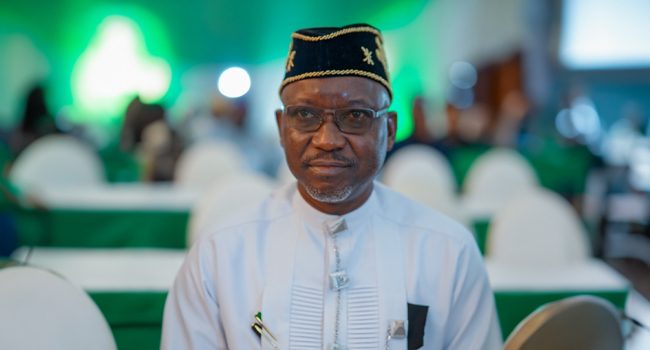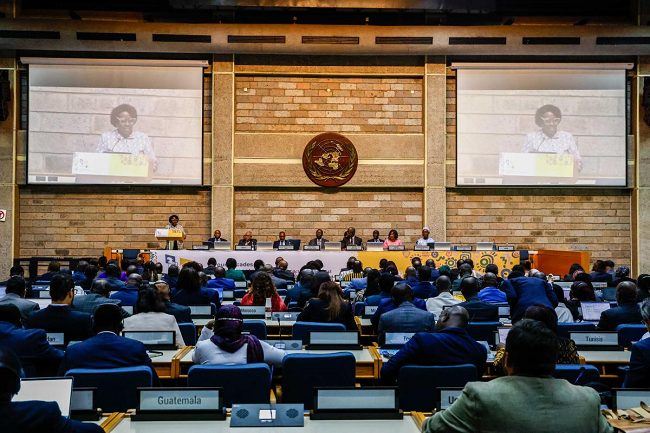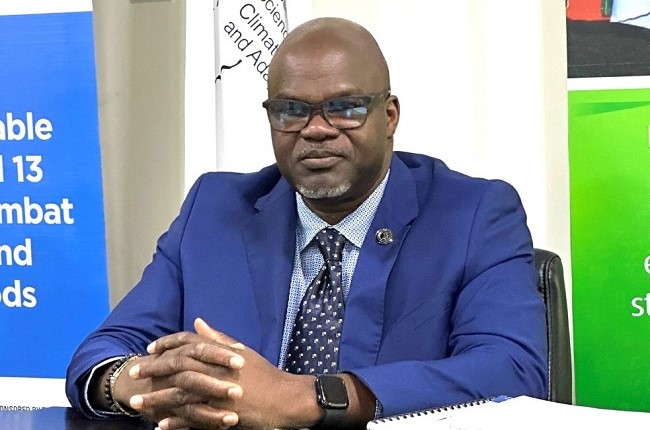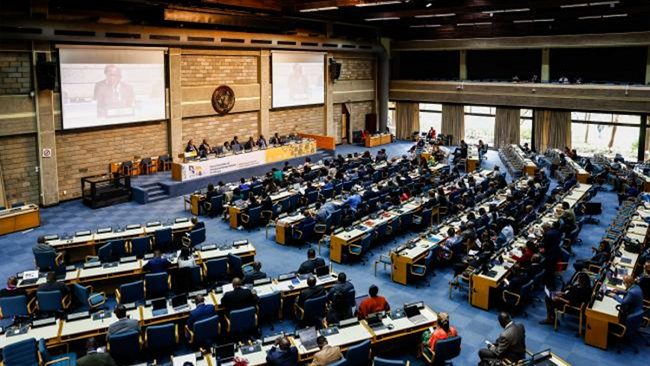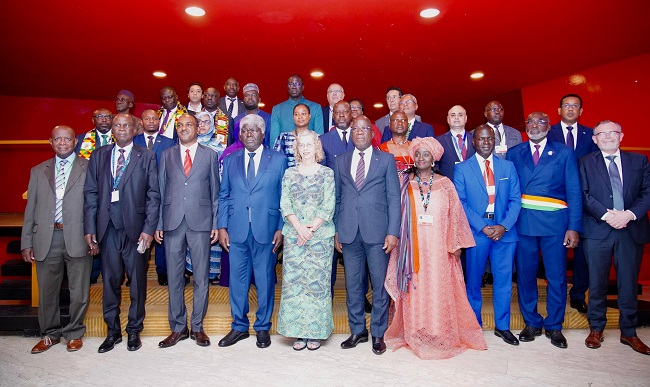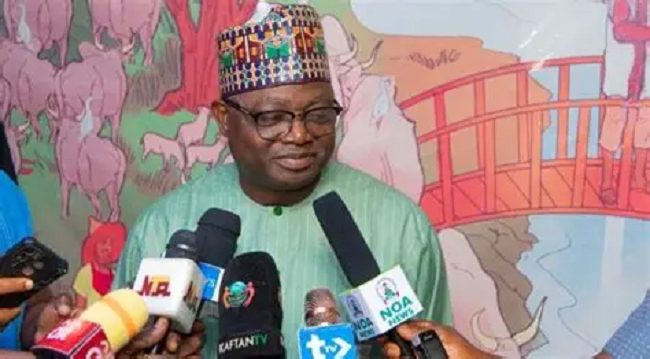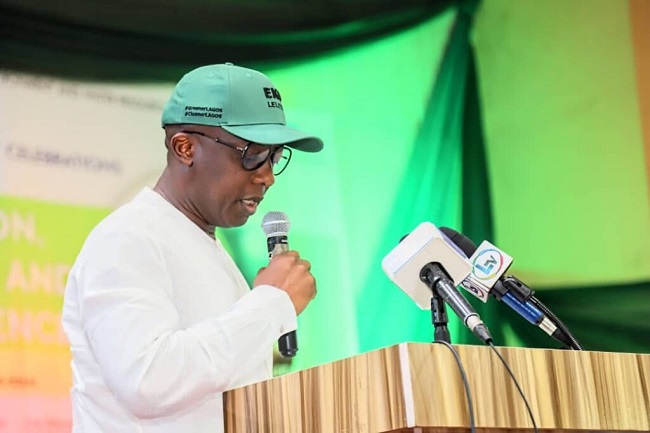Socio-Economic Rights and Accountability Project (SERAP) and four concerned Nigerians have filed a lawsuit against the government of President Bola Tinubu over “the failure to publish the report of the forensic audit carried out on the Niger Delta Development Commission (NDDC) which allegedly indicts high-ranking officials and politicians over missing N6 trillion from the commission between 2001 and 2019.”
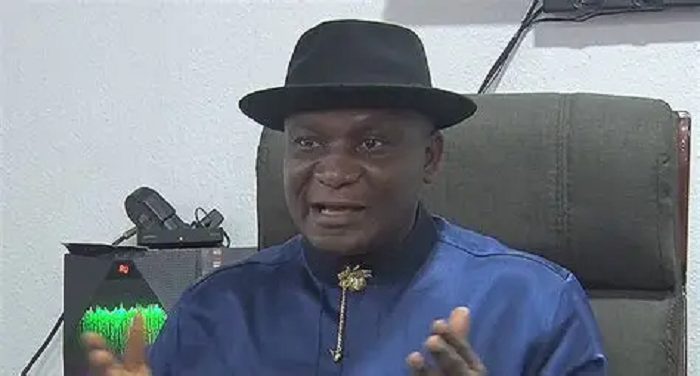
Following the allegations of grand corruption, the late former president Muhammadu Buhari in 2019 ordered a forensic audit of the NDDC’s operations. Also, the Minister of the Federal Capital Territory (FCT), Nyesom Wike, recently alleged that the wife of a former minister collected N48 billion over 12 months “to train Niger Delta women.”
The four concerned Nigerians in the suit are: prince Taiwo Aiyedatiwa; chief Jude Igbogifurotogu Pulemote; Ben Omietimi Tariye; and princess Elizabeth Egbe.
In the suit number ECW/CCJ/APP/35/25 filed last Friday before the ECOWAS Community Court of Justice in Abuja, the plaintiffs are seeking: “a declaration that the failure of the Nigerian government to publish the NDDC forensic report amounts to a fundamental breach of the country’s international human rights obligations.”
The plaintiffs are seeking “an order directing and compelling the Nigerian government to publish and ensure access to information to the NDDC forensic report which has been submitted to the government but remains shrouded in secrecy.”
The plaintiffs are also seeking “an order directing and compelling the Nigerian government to adopt and ensure effective measures to address transparency and accountability gaps in the spending of public funds budgeted for the NDDC.”
In the suit, the plaintiffs are arguing that, “The Nigerian government has violated our right to know the truth about the corruption allegations documented in the NDDC forensic report. The obstruction of the publication of the report is perpetrating impunity and the cover-up of the allegations documented in the report.”
The plaintiffs are also arguing that, “Implicit in freedom of expression is the public’s right to open access to information and to know what governments are doing on their behalf, without which truth would languish and people’s participation in government would remain fragmented and illusory.”
The plaintiffs are arguing that, “The Nigerian government has failed and refused to publish the NDDC forensic report and has failed to provide any reasons or grounds for withholding the report from the plaintiffs and the Nigerian public.”
According to the plaintiffs, “The Nigerian government has the legal obligations to guarantee and ensure transparency and access to information regarding the NDDC forensic report as a component of the right to seek, receive, and impart information of all kinds.”
The suit filed on behalf of SERAP and the four concerned Nigerians by their lawyers, Kolawole Oluwadare, Kehinde Oyewumi and Andrew Nwankwo, reads in part: “There is an overriding public interest in the publication and disclosure of the NDDC forensic report.”
“The Nigerian government’s continuing failure to publish the NDDC forensic report denies the plaintiffs the ability to truly study the report and hold the government to account, as well as damages the rule of law and violates the plaintiffs’ other rights.
“The information sought is not classified information for reasons of national security, as the NDDC forensic report relates to issues of transparency, accountability and human rights, which are covered under the African Charter on Human and Peoples’ Rights and the International Covenant on Civil and Political Rights.
“Access to public information is a fundamental human right protected by Article 9 of the African Charter on Human and Peoples’ Rights and Article 19 of the International Covenant on Civil and Political Rights, which require the Nigerian government to respect, promote and ensure it. Nigeria has ratified both human rights treaties.
“Article 9 of the African Charter on Human and Peoples’ Rights and Article 19 of the International Covenant on Civil and Political Rights include a positive obligation on the Nigerian government to allow the plaintiffs to access the NDDC forensic report under its custody and control.
“Access to information is a basic tool for building citizenship, and the plaintiffs have the right to participate in matters of public interest, such as pursuing accountability and justice for victims of corruption documented in the NDDC forensic report.
“These matters of public interest are part of the ideals underlying the African Charter on Human and Peoples’ Rights and the International Covenant on Civil and Political Rights and other human rights treaties to which Nigeria is a state party.
“Access to information regarding the NDDC forensic report would enable the plaintiffs to effectively exercise their human rights and to hold the Nigerian government to account for the allegations documented in the report.
“Public access to the NDDC forensic report would also promote democratic participation, and empower the citizens to hold the Nigerian government accountable and to control corruption in the country.
“In order to guarantee the full and effective exercise of the right of access to information, state administration, including the Nigerian government must follow the principles of maximum disclosure and good faith.
“The principle of maximum disclosure is a guiding principle of the right to information, found in Article 9 of the African Charter on Human and Peoples’ Rights and Article 19 of the International Covenant on Civil and Political Rights.
“The principle of maximum disclosure calls for a legal regime in which transparency and the right to access are the general rule and are only subject to strict and limited exceptions. The right of access to information is the rule, and secrecy is the exception.
“The right of access to information is not absolute; it can be subject to limitations.
“However, these limitations must comply strictly with the requirements derived from international human rights law, namely that limitations are exceptional, legally enshrined, based on a legitimate aim, and necessary and proportional for pursuing that aim.
“However, the exceptions should not become the general rule; they must take into account that access to information is the rule and secrecy the exception.
“The Nigerian government has the burden of proof of demonstrating that limits to publishing and accessing information regarding the NDDC forensic report are compatible with international human rights standards and the corresponding legal obligations imposed on the country.
“Since the NDDC forensic report is in the custody of the Nigerian government and under its control, discretionary and arbitrary acts of the State must be avoided in establishing restrictions on the right to information and transparency.
“The denial of access to information regarding the NDDC forensic report is a violation of the plaintiffs’ right to a legal remedy and incompatible with the requirements of the African Charter on Human and Peoples’ Rights and International Covenant on Civil and Political Rights.”
No date has been fixed for the hearing of the suit.

